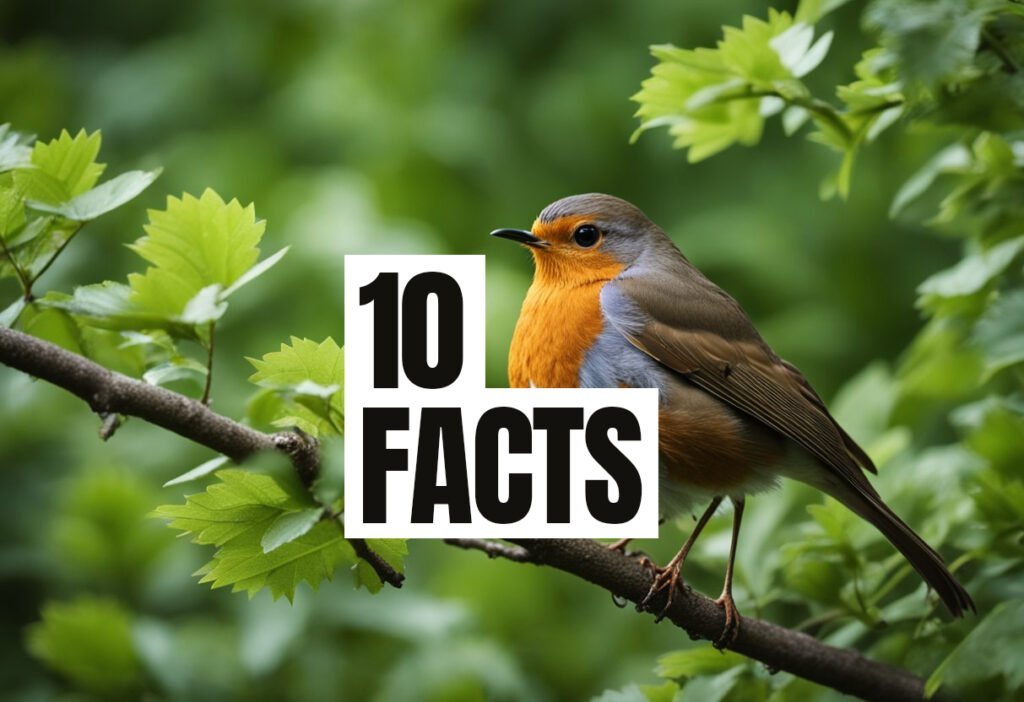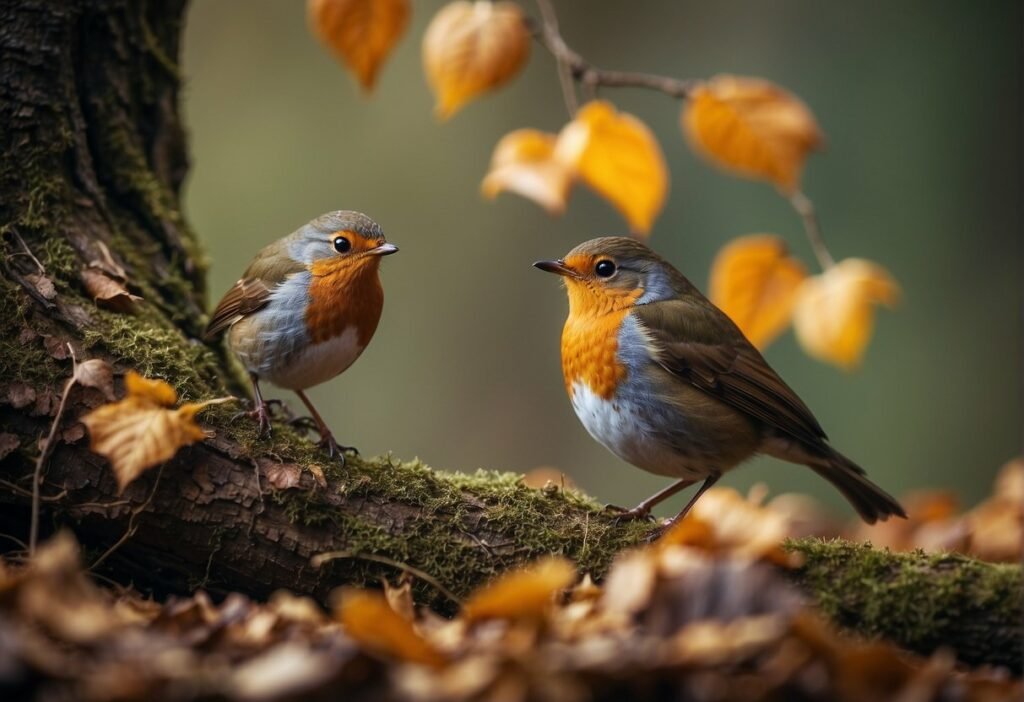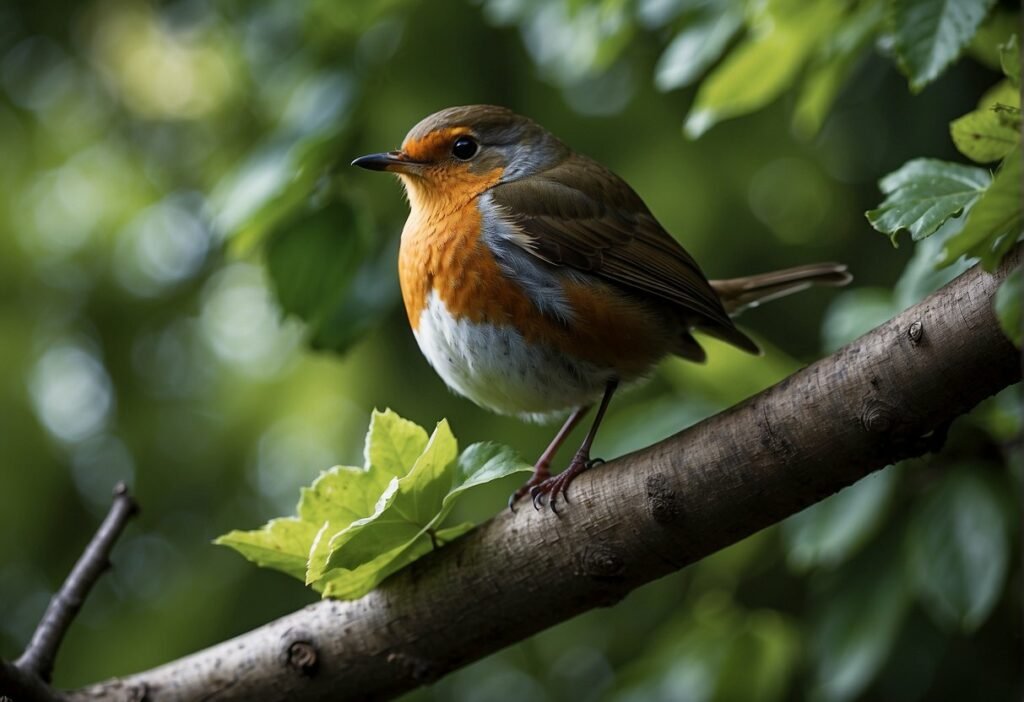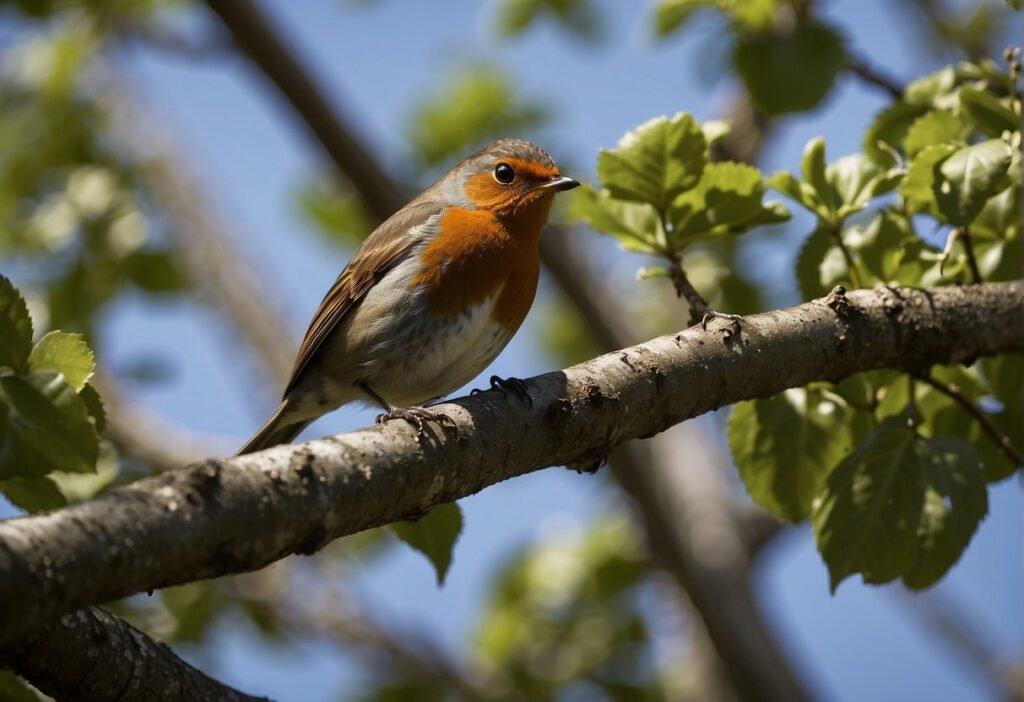Robins are a common sight in North America, with their bright red breasts and distinctive song. While many people enjoy watching these birds in their natural habitat, some may wonder if they can keep them as pets. The answer, however, is not as straightforward as one might think.

Firstly, it is important to note that the American robin, the most common species found in North America, is a wild bird and protected by federal law. It is illegal to own or keep one as a pet without a special permit. Furthermore, even if one were to obtain a permit, it is not recommended to keep robins as pets due to their migratory nature and specific dietary and environmental needs.
While it may be tempting to keep a wild robin as a pet, it is important to remember that these birds are meant to live in the wild. Attempting to keep one as a pet can lead to stress, malnutrition, and ultimately, a shortened lifespan. Instead, it is recommended to enjoy these birds in their natural habitat and provide food and shelter to encourage them to visit your yard.
Legality and Ethical Considerations
Legal Status
In many countries, it is illegal to keep wild birds, including robins, as pets without proper permits and licenses. In the United States, for example, the Migratory Bird Treaty Act prohibits the possession, sale, and transport of migratory birds, including robins, without a federal permit. Violating this law can result in fines, imprisonment, or both.
Impact on Wild Populations
Capturing wild robins for the pet trade can have a negative impact on their wild populations. Removing individuals from their natural habitat can disrupt breeding patterns and reduce genetic diversity, which can ultimately harm the overall health of the population. Additionally, the release of captive robins into the wild can introduce diseases or parasites that may harm wild populations.
Ethics of Domestication
Keeping wild animals as pets raises ethical concerns. Domestication of wild animals often involves selective breeding, which can lead to physical and behavioral changes that may not be beneficial for the animal’s well-being. Domesticated animals may also be deprived of their natural instincts and behaviors, leading to stress and other health issues. Therefore, it is important to carefully consider the ethical implications of keeping robins as pets, and to ensure that their needs are met in captivity.
In summary, the legality and ethics of keeping robins as pets are complex issues that require careful consideration. While it may be tempting to keep these beautiful birds as companions, it is important to understand the legal and ethical implications of doing so, and to ensure that their welfare is prioritized above all else.
Robins in the Wild
Habitat and Distribution
The American Robin, scientifically known as Turdus migratorius, is a common thrush species found in North America. They are widespread and abundant, occupying a variety of habitats including forests, open spaces, parks, fields, and urban areas. They can be found throughout most of North America, from Alaska to Mexico, and are known to migrate south during the winter season.
Diet and Feeding Habits
Robins are omnivores, feeding on a variety of foods including fruits, berries, seeds, insects, and invertebrates. They are known to forage on the ground, using their beak to dig for worms and other prey. During the winter season, they may rely more heavily on berries and fruits. They are also known to form flocks and roost together during the winter months.
Behavior and Social Structure
Robins are social birds, often seen in pairs or small flocks. They are known to be friendly birds and are not typically aggressive towards humans. They are territorial during the breeding season, defending their nests and chicks from predators. Robins are also known to be highly vocal, with a distinctive song that is often heard in the early morning.
Breeding and Lifespan
Robins breed in the spring, building their nests out of twigs, mud, and tree branches. They lay blue-green eggs and typically have 1-3 broods per year. The chicks hatch after around two weeks and are cared for by both parents. Robins have a lifespan of around 2-3 years in the wild, although some have been known to live up to 14 years.
Overall, the American Robin is a common and widespread species that plays an important role in the ecosystem. While they are not typically kept as pets, they can be found in pet stores and rehabilitation centers. It is important to note that in some areas, populations of robins have been affected by pesticide use and habitat destruction.
Frequently Asked Questions
Is it legal to keep robins as pets in the United States?
Robins are protected under the Migratory Bird Treaty Act, which makes it illegal to keep them as pets without a special permit. In general, it is not recommended to keep wild birds as pets, as they require specialized care and may not adapt well to captivity.
What are the regulations for owning a robin as a pet in California?
In California, it is illegal to keep any native bird as a pet without a permit from the Department of Fish and Wildlife. This includes robins, which are protected under state and federal law. It is important to note that obtaining a permit can be difficult and costly, and may not be granted unless the bird is being kept for educational or scientific purposes.
What species of birds are commonly kept as pets?
There are many species of birds that are commonly kept as pets, including parrots, canaries, finches, and budgerigars. These birds are often bred in captivity and have been domesticated over many generations to adapt to life with humans. They require specialized care, including a balanced diet, regular veterinary check-ups, and plenty of socialization and mental stimulation.
What diet should be provided to a pet robin?
If you have a permit to keep a robin as a pet, it is important to provide it with a balanced diet that mimics its natural diet in the wild. This may include insects, fruits, and berries. It is recommended to consult with a veterinarian or avian specialist to ensure that your bird is receiving proper nutrition.
How can one safely and humanely tame a wild robin?
It is not recommended to attempt to tame a wild robin, as it can be stressful for the bird and may not be successful. If you are interested in keeping a robin as a pet, it is recommended to obtain one from a reputable breeder or rescue organization that specializes in birds.
Do robins typically form attachments with human caregivers?
While robins are not typically kept as pets, they have been known to form strong attachments with humans who provide them with food and shelter. However, it is important to remember that wild birds should be respected and observed from a distance, and should not be taken from their natural habitats.




